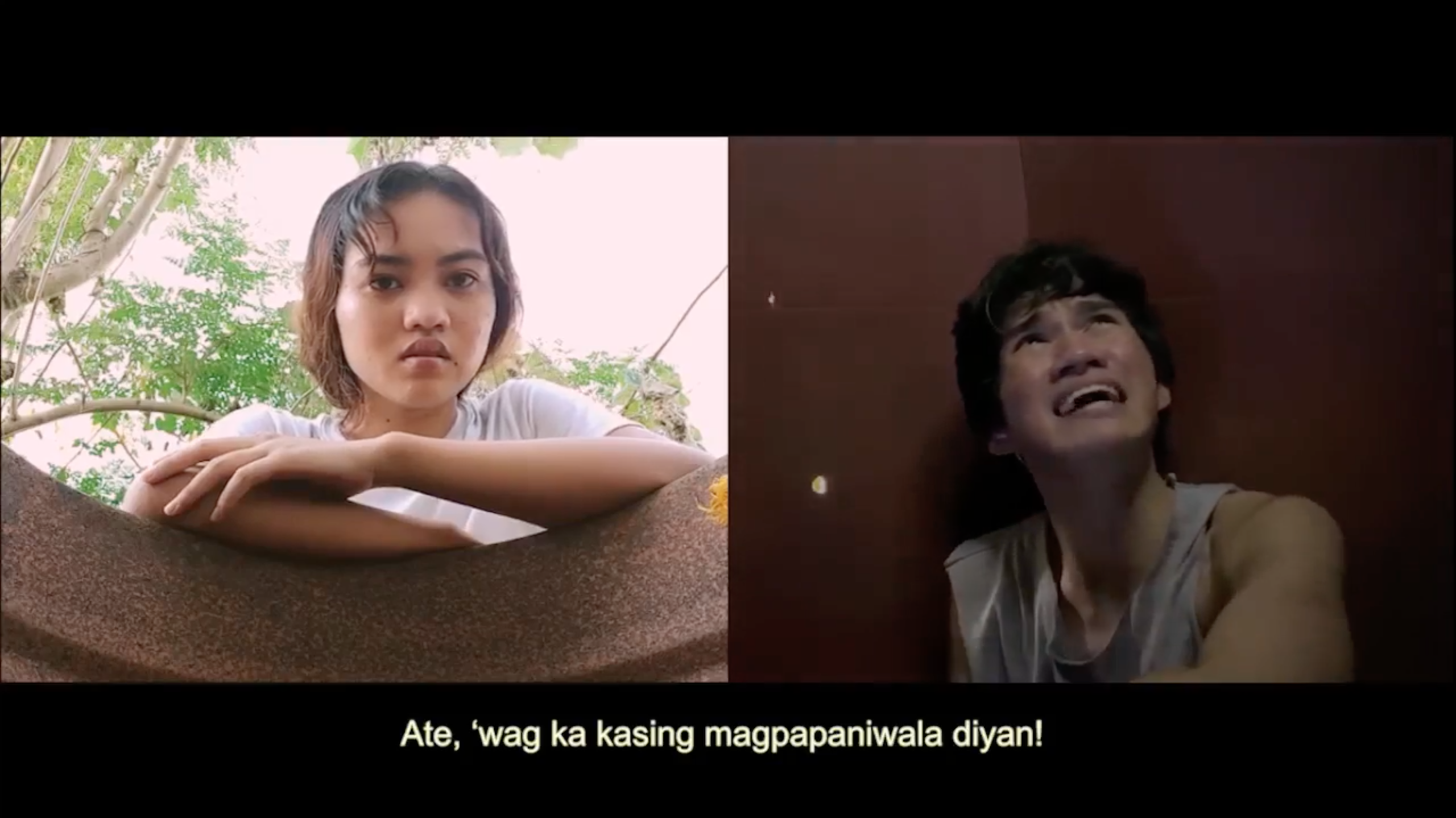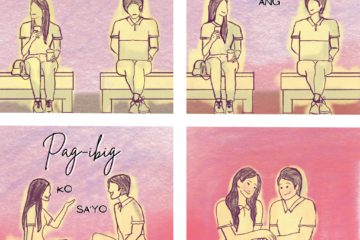By: CZERIZHA KAIZEL S. ADZUARA

LONELINESS can obscure the sense of hope in a child’s eyes. When hope fades, it leaves the heart empty and in perpetual despondence. However, a helping hand can fill the emptiness with flowing optimism once again.
Touching hearts and igniting hope, theater guild Teatro Tomasino offers Ang Bata sa Drum for its 44th season. Written by Dominique La Victoria and directed by Danica Geotina and Mia Kaella Enriquez, the one-act drama was broadcasted on Teatro Tomasino’s Facebook page last Dec. 4.
The play begins with a young weeping Roro (Laurenzo Roda) trapped in a drum by his father as a punishment for causing trouble. Roro’s elder sister, Krisel (Caryl De Los Santos), searches for him in their backyard. As Krisel finds Roro in his water drum predicament, a conversation between the siblings arises.
The sibling’s profound talk eventually unfolds the elder sister’s secret and Roro’s long self-repressed problems.
As Krisel and Roro communicate throughout the play, the viewers further discover their household background. Having a mother who works in the city, the two are left in the province in the care of their abusive father. This consequently is the origin of the siblings’ several inevitable difficulties.
The two characters’ conversation portrays a typical siblings’ dialogue: consisting of banters with subtle fondness and concern for one another. The demonstration of a sister’s love in quips is revealed through Krisel’s character. She comforts Roro and persistently persuades him to leave the drum so that he can evade his punishment in their father’s absence.
On the other hand, Roro presents a child’s stubbornness. He conveys a child’s resolve who accepts and justifies his punishment. As he grows accustomed to his father’s abuse, Roro begins to keep his problems and sentiments alone. This prompts the character’s disheartened behavior towards family events and matters.
Moreover, as Krisel and Roro learn to open up to one another, they begin to establish a more intimate sibling relationship. Roro, being in a water drum’s confinement, finally begins to feel a sense of belongingness under his sister’s comfort and company after a long time of feeling alone.
However, the young sanguine heart of Roro eventually shatters as the two siblings must settle a decision. The matter involves moving to a greener pasture— a home in the city with their mother.
It must be done without the knowledge of their abusive father, but Roro must initially be left behind. This provides Roro with another predicament that he will soon be facing. Nonetheless, he welcomes it with a reassured heart shaped by the helping hands of his beloved sister.
Despite the play’s suggestive denouement, it still leaves the viewers uncertain. Roro’s development as a character does not exhibit resolution for his plight. The vivid sense that Roro will continue to experience his father’s abuse during Krisel’s absence remains despite the play’s hopeful conclusion.
In terms of the characters’ execution, the actors eloquently portrayed each of their personas. Laurenzo Roda and Caryl De Los Santos performed in harmony despite their separate set. The cast exuded the sentiments and endeavors of the two characters who reside in the province in poverty. Their costumes also complement the qualities of Krisel and Roro, evoking the audience’s perception of the characters’ age and socioeconomic status.
Furthermore, despite the limited means of production due to the pandemic, the play effectively reveals a rural environment that signifies the drama’s setting. This includes the various sound effects that are utilized throughout the narrative. The sound effects include the crows of chickens, songs of birds, and also human noises that incorporate the characters’ physiological state.
Ang Bata sa Drum successfully yields a coming-of-age perspective of the Filipino youth subjected to tragic circumstances brought upon economic and domestic matters. The drama is relevant in today’s society as the pandemic has caused difficult repercussions among the hearts of children, especially the poor. Nevertheless, hope can seep from different places as long as there are those willing to help.
Likewise, the bond between Roro and Krisel shows how siblings’ compassion cannot be bound by a lonesome rusting water drum. F



